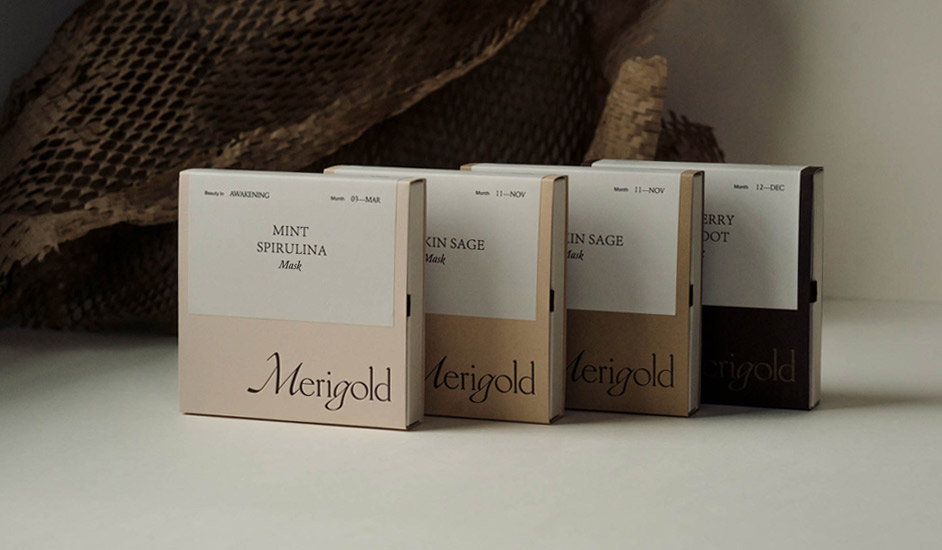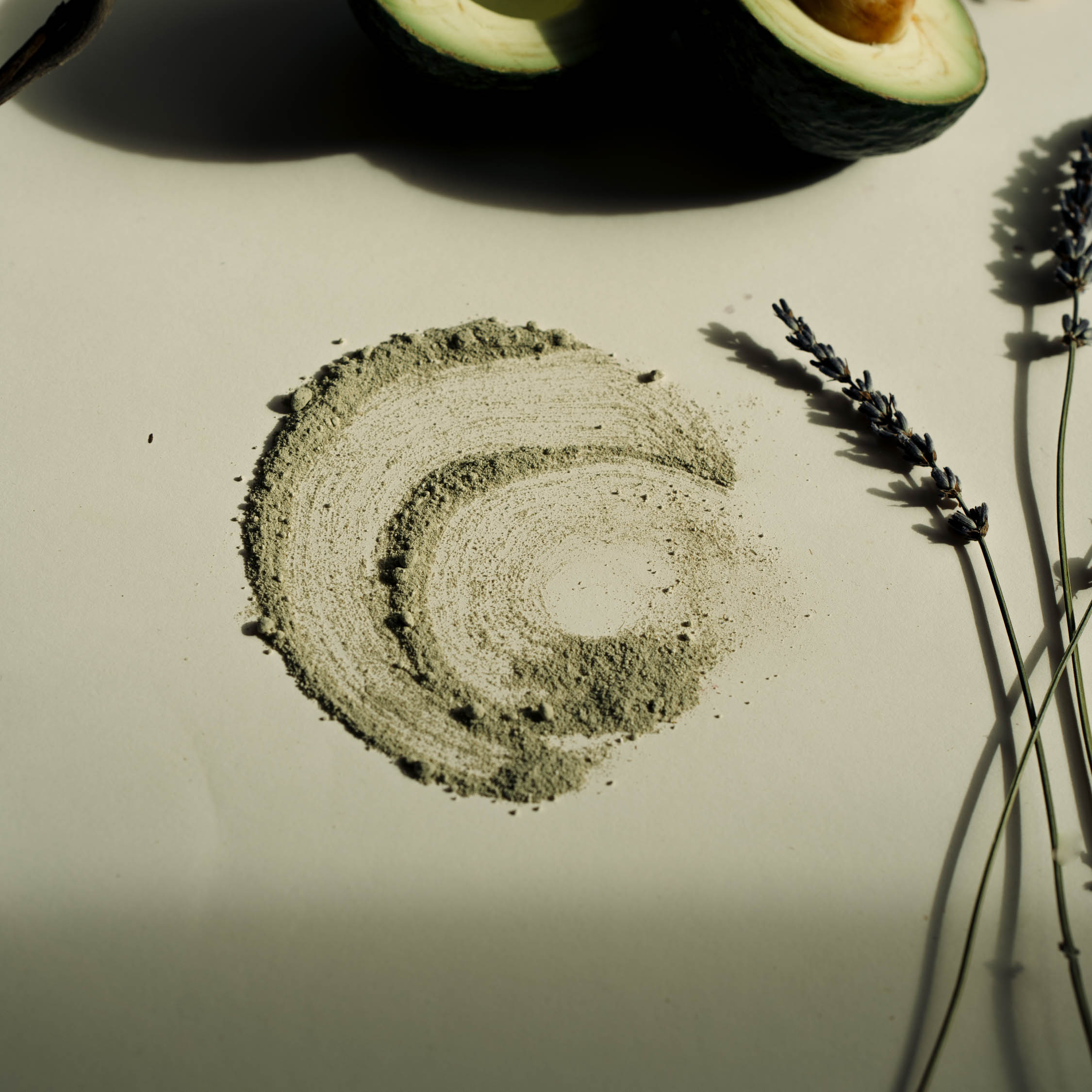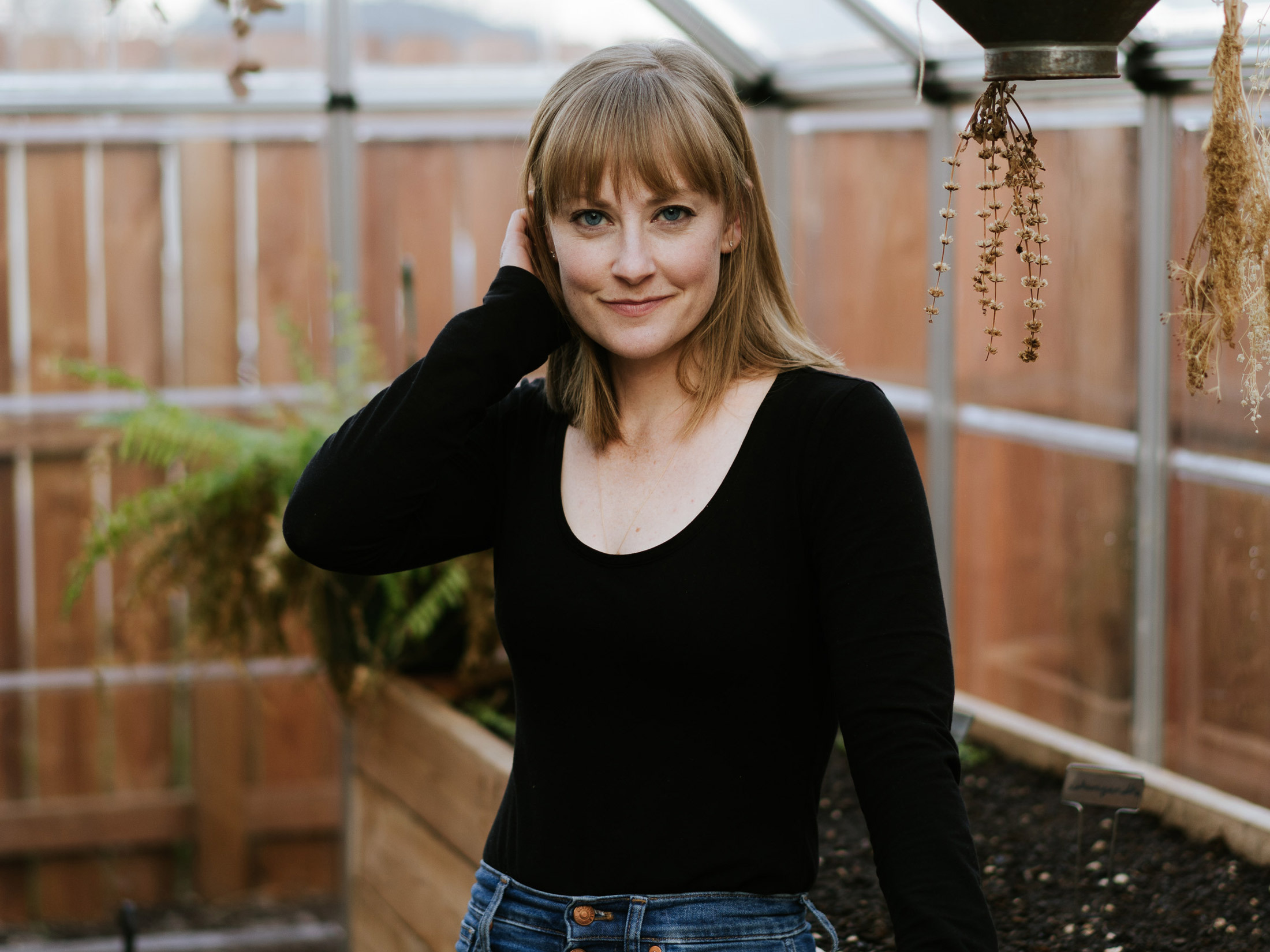
Merigold Creates Monthly Face Masks To Address The Ways Skin Changes Throughout The Year
Hillary Tijerina had the same face mask tub sitting in her bathroom for three years. During some points of the year in Denver, where she lives and spent about a decade as a pediatric nurse at Children’s Hospital Colorado, it didn’t make sense to use it. During other points of the year, she wasn’t excited about using it. “There are so many fun new things to try,” she says.
It dawned on Tijerina that she could create monthly face masks to solve her two issues: finding masks that responded to the impacts of the shifting seasons on her skin and allowed her to experiment with different formulas. “With the idea of something each month, I wanted to honor the changes that our skin and body go through and help encourage people to have a ritual mindset with these practices versus, just do a mask, and you will have perfect skin,” she says. “There’s so much more involved in it than that.”
Merigold is the face mask membership concept that emerged from Tijerina’s ruminations. Launched in November, it releases a face mask monthly—it started with pumpkin sage, December was cranberry beetroot, January was avocado matcha, February is cacao rose, and March is mint spirulina—and ships three single-use packets of the mask to customers the first week of each month. A yearly subscription is priced at $300, but customers can buy the set of three single-use masks for $32 on a one-off basis and a $30 ritual kit with a ceramic bowl and application brush, too.

“They are powered masks that are activated right before you put them on. I always use clean, organic ingredients. I’m trying to be really mindful of bringing actual nourishment to people’s skin,” says Tijerina. “We are looking at as, in this season, what is your skin lacking, and what is needed for a nourishment boost? In the winter, we’re focusing on hydration and, in the summer, the skin is exposed to the sun, so we’re doing as best we can to provide assistance with repair.”
As Merigold gets off the ground, it’s generally producing 250 units of the sets of three monthly single-use masks. Once the units are purchased, the monthly mask is done. The masks are manufactured in-house, and Tijerina operates a season ahead to ensure the masks are ready to be sent to customers as a new month arrives. “The big thing is keeping up with the pace and doing the best that we can at predicting the quantities for the next month,” she says.
Tijerina, who on top of being a beauty entrepreneur and previously a pediatric nurse is a certified natural food chef, turns to food and cooking for inspiration for Merigold’s face masks. “Spring is coming up, so I’m thinking of all the beautiful produce that’s going to be available,” she says. She even develops beverage recipes that she suggests customers pair with Merigold’s monthly masks. They’re reminders that health and beauty are a marriage of the exterior and interior. “They’ve always been segmented separately, but people are recognizing that they need to be one and the same,” says Tijerina. “I’m trying to merge them as best I can with Merigold.”
“With the idea of something each month, I wanted to honor the changes that our skin and body go through.”
To date, the vast majority of Merigold’s customers are subscribers and discover it via word of mouth. They’re largely busy mothers and professionals aged 28 to 37 years old. Merigold’s message of masks as vehicles for moments of pause resonates with them. “They’re women a little bit more established in their career who are like, ‘If I keep going at this pace, I’m going to burn myself out,’” says Tijerina.
Tijerina isn’t sure if the obsolescence model will be Merigold’s model forever. After it’s been in a market for a year, she says she will evaluate its business to determine if monthly mask releases are doable in perpetuity. She envisions possibly having artisanal masks rotating in and out of Merigold’s assortment while maintaining a permanent collection as well. Seasonal drops aren’t uncommon for beauty brands. For example, Osmia, another brand headquartered in Colorado, has a craft series with products tailored to the scents of the season.
The monthly model can be difficult for retailers. At Merigold, shelf life isn’t a problem because the powdered masks don’t have water for bacteria to fester in. However, the monthly labeling can be a problem, and Merigold removes it for retailers. The brand did a run of masks for men’s e-tailer Huckberry timed with Valentine’s Day, and Tijerina is definitely open to escalating Merigold’s retail presence. She says, “I want people to be able to access Merigold, and I want it to be a low lift for them to be able to interact with it.”

Going forward, Tijerina will consider moving Merigold beyond face masks (she lists face oils, hydrators and mindfulness journals as possibilities), but she’s content for it to remain a face mask specialist for now. “I really want to do one thing really well,” she says. Merigold hasn’t been concentrating on advertising, and Tijerina is interested in beginning to dabble in ads along with expanding the brand’s library of imagery and videos.
In five years, Tijerina projects Merigold could reach $3 million to $5 million in sales. “In five years, I think I definitely want the business to be well-established and able to support other people’s incomes and jobs,” she says. “I want it to be a job generator for women and actually create an environment where you can be a mom.”
The biggest surprise so far for Tijerina as she builds Merigold and navigates motherhood is that the moments of pause she seeks to support with it—and make a habit of herself—are incredibly difficult to squeeze in for an entrepreneur. “When you found and own a business, you are going to lay in bed at night thinking about how you can grow it. What should I do next?” she says. “I created a business based on what I need to do for the rest of my life, and the surprise is that, OK, maybe I’m not as good at it as I thought.”





Leave a Reply
You must be logged in to post a comment.